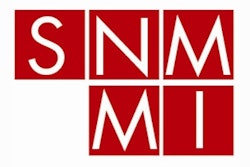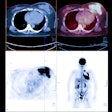The U.S. Nuclear Regulatory Commission (NRC) is seeking feedback on a proposal to allow physicians to become "limited authorized users" for administering certain therapeutic and theranostic radiopharmaceuticals.
Currently, any physician, such as medical oncologist, who lacks NRC-recognized board certification would need to complete prescriptive training and experience prerequisites and other specified requirements in the 10 CFR 35.390 statute that are intended to ensure a minimum competency for supervising the medical use of certain unsealed radiopharmaceuticals.
The NRC's proposal for an "authorized user" concept, however, would allow physicians who are not specialized in the use of radiopharmaceuticals and radiation to relatively easily and rapidly achieve limited authorized user status on a radionuclide-specific basis, according to the American College of Radiology (ACR). It would involve an "as-of-yet-unspecified, but assuredly less comprehensive, set of training and experience prerequisites that are currently required in 10 CFR 35.390," the ACR said.
The ACR opposes the NRC's plan, stressing the multifactorial drivers of cancer care decision-making and the safety risks and regulatory oversight issues with establishing a limited authorized user pathway. The ACR also added that there is a need to collect more public input from the medical licensee community and to address the lack of "trustworthy evidence to justify any future rule-making on this controversial issue."
The NRC has scheduled public webinars and meetings on November 14, December 11, January 10, and January 22 to discuss the proposal, which was published in the October 29 issue of the Federal Register.




















